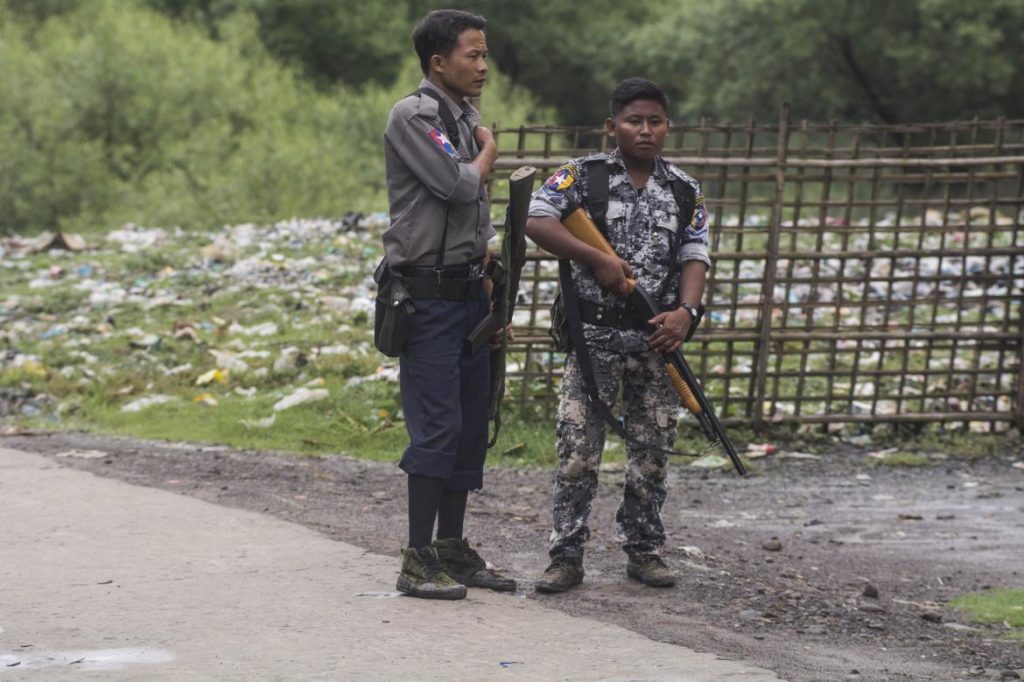A senior United Nations official has issued a scathing response to government denials of human rights abuses by the security forces in northern Rakhine State.
In a statement issued in Geneva on November 18, the UN special rapporteur on human rights in Myanmar, Ms Yanghee Lee, urged the government to take immediate action to tackle the “deteriorating” human rights situation in northern Rakhine.
She said a government-supervised visit to the affected region early this month by the top UN official in Myanmar, Ms Renata Lok-Dessallien, and nine ambassadors had produced only limited results in addressing an humanitarian crisis.
The special rapporteur expressed particular concern at reports from the area that a security operation had been stepped up after the delegation ended its visit.
“The Government has now admitted using helicopter gunships in support of ground troops, and there are unverified claims of reprisals against villagers who had shared their grievances with the delegation,” Lee said.
Support more independent journalism like this. Sign up to be a Frontier member.
“The security forces must not be given carte blanche to step up their operations under the smokescreen of having allowed access to an international delegation. Urgent action is needed to bring resolution to the situation,” she said.
Lee said the government should immediately launch a transparent, non-partial, independent investigation into allegations of human rights abuses, including torture, rape, summary executions and the torching of homes and mosques.
“State Counsellor Aung San Suu Kyi has recently stated that the Government is responding to the situation based on the principle of the rule of law. Yet I am unaware of any efforts on the part of the Government to look into the allegations of human rights violations,” Lee said.
“It would appear, on the contrary, that the Government has mostly responded with a blanket denial. This begs the question as to whether relevant evidence is being preserved to enable perpetrators to be held to account for their wrongdoings,” she said.
“Pointing fingers without definitive answers should be avoided.”
Lee also criticised the decision by the authorities to place the area under “lockdown” when the security operation began after a deadly attack by militants on Border Guard Police posts on October 9 left nine officers dead.
“It is not acceptable that for six weeks there was a complete lockdown, with no [humanitarian] access to the affected area,” she said.
In a related development, the UN High Commissioner for Refugees on November 18 called on the government to allow humanitarian organisations to immediately resume “life-saving” activities for about 160,000 civilians in the affected area.
They rely on the humanitarian organisations for food aid, nutrition supplements, healthcare and education.







